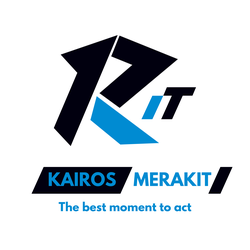Blockchain development companies specialize in building, deploying, and maintaining blockchain-based solutions. These companies help businesses leverage blockchain technology to achieve transparency, security, and efficiency in various processes.
Explanation of What Blockchain Development Companies Do
Blockchain development companies create customized solutions using blockchain technology. This includes developing smart contracts, decentralized applications (dApps), private and public blockchains, and integrating blockchain solutions into existing systems. Their goal is to enhance data security, improve transaction transparency, and enable decentralized ecosystems.
Key Services Blockchain Development Companies Typically Offer
Blockchain Consulting: Assessing the feasibility of blockchain technology for specific business needs.
Smart Contract Development: Writing and deploying self-executing contracts.
Custom Blockchain Development: Creating private or public blockchains tailored to business requirements.
Decentralized Application (dApp) Development: Designing user-friendly applications on blockchain platforms.
Integration Services: Incorporating blockchain solutions into existing business processes and systems.
Blockchain Maintenance and Support: Ensuring blockchain solutions remain secure and operational over time.
Importance of Localized Expertise in Quebec City
Hiring a blockchain development company with localized expertise in Quebec City ensures a deeper understanding of the local market dynamics, regulatory environment, and unique challenges businesses face. Companies familiar with the Quebec City market can provide tailored solutions that align with local business goals and requirements.
How We Ranked the Best Blockchain Development Companies
Criteria Used for Evaluation
Portfolio Quality: The diversity and complexity of projects completed by the company.
Client Reviews: Feedback from past clients regarding project delivery and results.
Industry Experience: The company’s track record in blockchain development and expertise in relevant technologies.
Local Market Understanding in Quebec City: Knowledge of the local business landscape, including regulations and market trends.
Methodology for Selecting Top Agencies
We analyzed each company's technical capabilities, client satisfaction scores, and case studies. Special emphasis was placed on their ability to meet the unique needs of businesses in Quebec City.
Benefits of Hiring a Blockchain Development Company in Quebec City
How Blockchain Companies Can Help Businesses Grow
Blockchain development companies in Quebec City can:
Enhance operational transparency.
Improve data security and reduce fraud risks.
Enable cost savings through efficient workflows.
Unlock new revenue streams by adopting blockchain-based business models.
Specific Benefits Tailored to the Quebec City Area or Market
Localized blockchain expertise in Quebec City ensures:
Adherence to regional regulatory requirements.
Customized solutions that address market-specific challenges.
Stronger connections with local business networks and resources.
Tips for Choosing the Right Firm
Factors to Consider
Budget: Ensure the company’s services align with your financial resources.
Niche Expertise: Look for firms specializing in your industry or use case.
Communication Style: Evaluate their ability to clearly communicate technical details.
Questions to Ask During Consultations
What is your experience with projects similar to ours?
Can you share case studies or client references?
How do you approach project timelines and milestones?
What security measures do you implement for blockchain solutions?
Importance of Alignment with Your Brand’s Goals
Choose a blockchain development company that understands your vision and can deliver solutions that reflect your brand identity and business objectives. Local expertise in Quebec City enhances this alignment by addressing specific needs within the local context.




